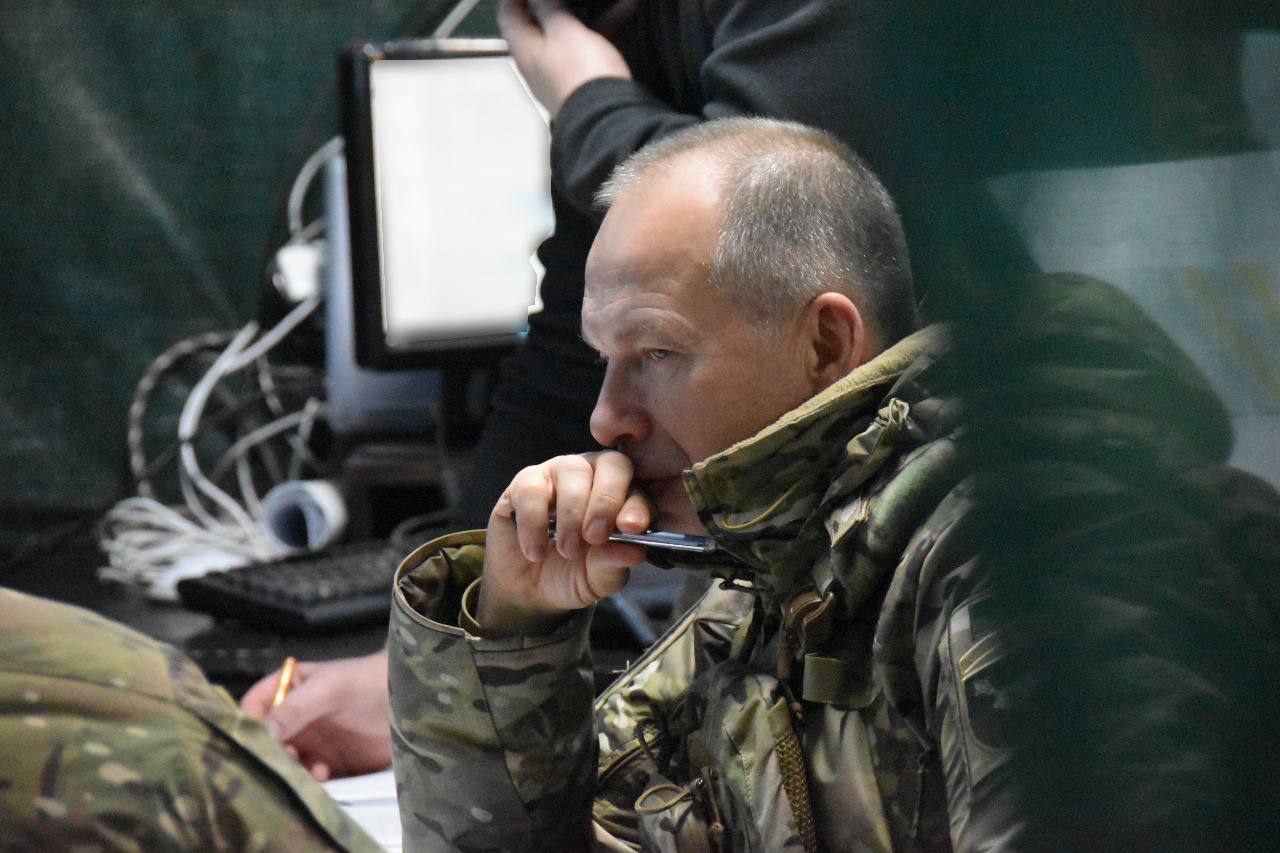UK flies fighter jets over Poland in warning shot to Putin to stay out of Nato territory
Moscow claims incursion into Estonia was ‘scheduled flight’ after Donald Trump warns the breach could lead to ‘big trouble’

© PA Archive
Moscow claims incursion into Estonia was ‘scheduled flight’ after Donald Trump warns the breach could lead to ‘big trouble’

© PA Archive

© PA Wire
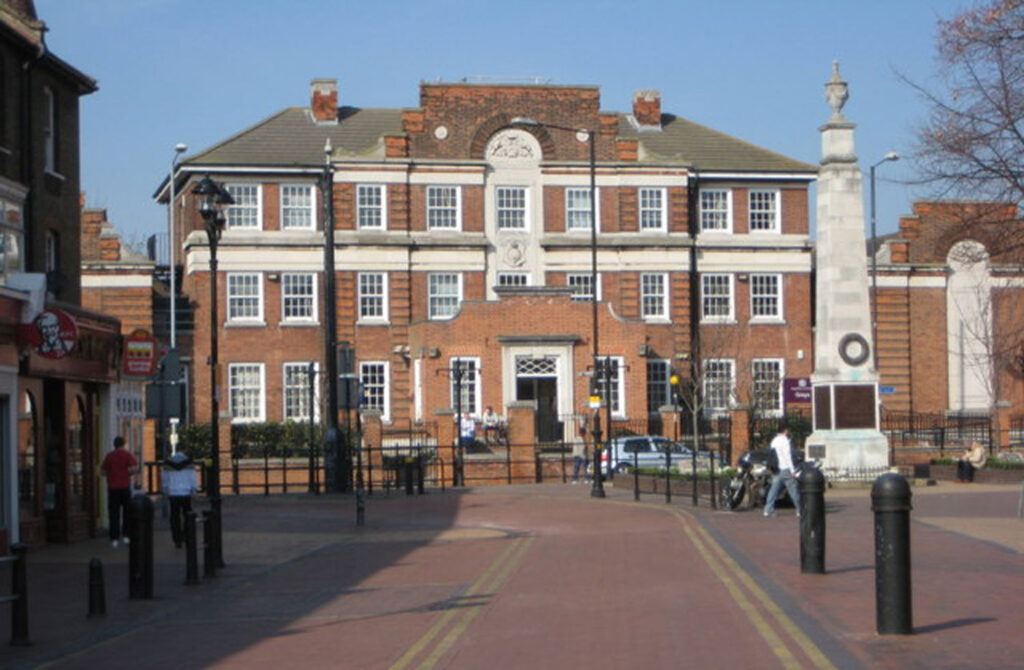
The Standard reports that three people were arrested in the town of Grays, Essex, England on suspicion of assisting Russian intelligence services. The UK police operation reflects growing concern over foreign states using British citizens as local proxies.
According to The Standard, two men and a woman were detained in Grays, a commuter town located east of London. The Metropolitan Police said the arrests were made as part of a national security investigation targeting individuals believed to be working with or for Russian intelligence.
Authorities stated that the suspects were taken into custody on suspicion of assisting a foreign intelligence service, under section 3 of the National Security Act (NSA), 2023. The suspects include a 41-year-old man and a 35-year-old woman arrested at the same residential address, and a 46-year-old man arrested separately nearby.
All three were transferred to a police station in London for questioning. Following searches at both Essex locations, the individuals were released on bail with conditions. The investigation is ongoing.
Commander Dominic Murphy, Head of the UK’s Counter Terrorism Command, warned that recent cases show a rising trend of British citizens being recruited as proxies by hostile intelligence agencies.
“Through our recent national security casework, we’re seeing an increasing number of who we would describe as ‘proxies’ being recruited by foreign intelligence services,” Murphy said.
He cited a separate case involving two British men who were recruited by the Wagner Group — a Russian state-affiliated paramilitary organization — to commit arson against a warehouse linked to Ukraine. The men have been convicted and are awaiting sentencing. Murphy clarified that the Essex arrests are unrelated to that incident but urged anyone contacted by foreign actors to think twice.
“This kind of activity will be investigated and anyone found to be involved can expect to be prosecuted,” he said, adding that there could be “very serious consequences for those who are convicted.”

© PA Wire
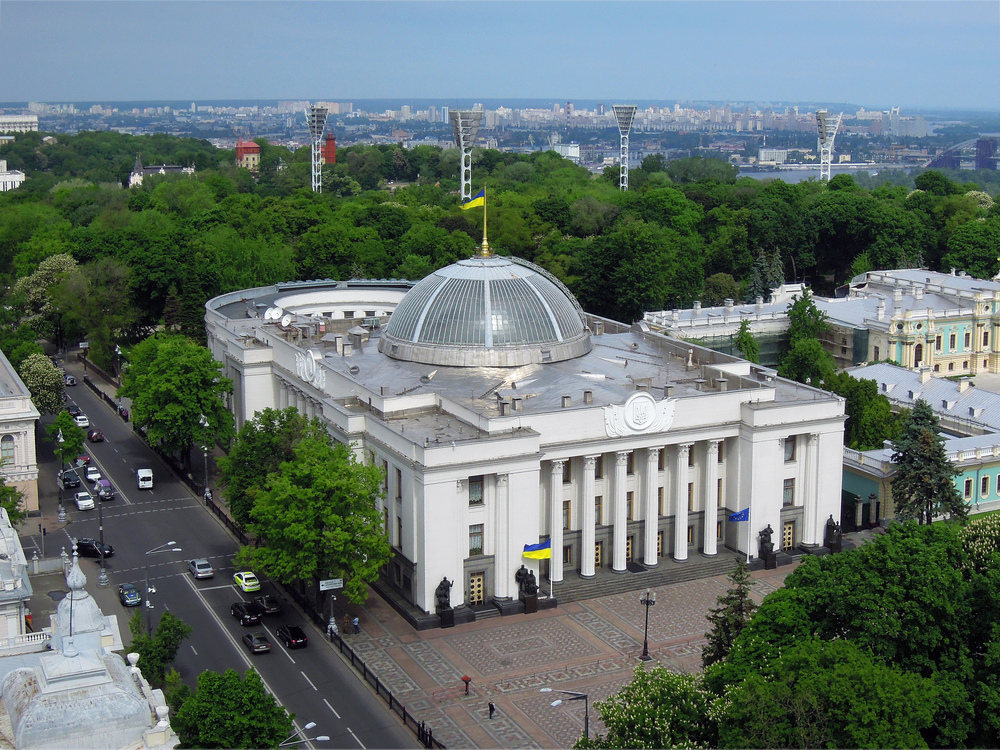
On 17 September, Kyiv ratified the century-long partnership agreement between Ukraine and the United Kingdom of Great Britain and Northern Ireland. The document was approved by 295 out of 397 Ukrainian deputies.
This agreement is crucial for Ukraine, as its allies still do not know how to end the war of attrition with Russia, despite statements by US President Donald Trump that he could end the war within 24 hours. Currently, partners also cannot provide security guarantees to Kyiv because no one wants to fight against Russia. Support from allies remains Kyiv’s only way to counter Moscow’s aggression, which has already extended beyond Ukraine into Poland.
The agreement establishes a new long-term framework for bilateral cooperation in security, defense, economy, science, technology, and culture, opening new opportunities to strengthen the strategic partnership between the two countries.
The document provides for annual military assistance from the UK to Ukraine of at least £3.6 billion until the 2030/31 financial year, and thereafter as needed.
This includes training Ukrainian troops, supporting pilots, supplying military aviation, developing joint defense production, and participating in joint expeditionary formats such as the Joint Expeditionary Force.
“Despite its grand title and good intentions, this agreement, unfortunately, does not provide security guarantees and is of a framework nature. Nevertheless, it is an important document aimed at strengthening strategic partnership with the UK,” said MP Iryna Herashchenko of the European Solidarity party.
Beyond the military sphere, the agreement opens prospects for scientific and technological projects, economic partnership, and cultural exchange, cementing Ukraine and the UK as strategic allies for decades to come.
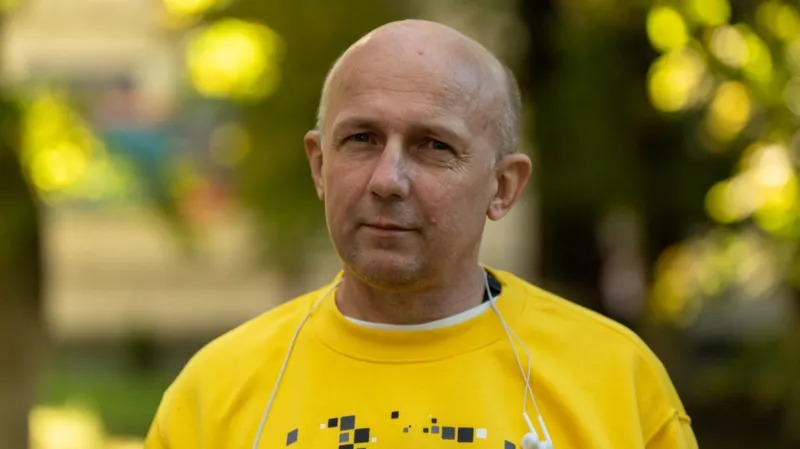
Since his release from a Russian prison, Ukrainian journalist Dmytro Khyliuk has barely been off the phone. BBC reports that he spent three and a half years in Russian captivity after being detained in the first days of the full-scale invasion. He was freed last month in a prisoner swap, one of eight civilians released in a rare move by Moscow.
Amid the ongoing Russo-Ukrainian war, most exchanges between Russia and Ukraine have involved soldiers. The return of eight civilians, including Dmytro, came in a group of 146 Ukrainians. They did not disclose the exact terms of the deal, only that it included “people Russia was interested in.” One source told BBC that some of them were residents of Russia’s Kursk region, evacuated during Ukraine’s incursion in 2024.
Crowds gathered waving Ukrainian flags when the freed men returned, many of them emaciated from years behind bars. Stepping off the bus, Dmytro immediately phoned his mother to say he was finally free. His parents are elderly and unwell, and he had long feared never seeing them again.
Speaking to BBC after his release, Dmytro described brutal treatment in multiple Russian facilities.
“They grabbed us and literally dragged us to the prison and on the way they beat us with rubber batons shouting things like, ‘How many people have you killed?’” he recalled.
Guards sometimes set dogs on prisoners.
“The cruelty was really shocking and it was constant,” he said.
He was never charged with a crime. In the first year, he endured starvation, losing more than 20 kg in a few months. He lost more than 20kg in the first few months. He also saw soldiers tortured with electric shocks during interrogations. The sounds of their pain and the bruises on their bodies left lasting impressions.
The ordeal started in 2022 in Kozarovychi, his family’s village near Kyiv. As he and his father Vasyl checked damage to their home during Russia’s assault on the capital, troops detained them. Both men were bound, blindfolded, and held in a basement under warehouses used as a Russian base.
Vasyl was released, but Dmytro was transferred deeper into Russia. His parents later received just two scraps of paper from him. One note read, “I’m alive, I’m well. Everything’s ok.” For months, they feared the worst.
BBC reports that more than 16,000 Ukrainian civilians remain missing. Officials have confirmed that only a fraction are in Russian prisons. Moscow does not publish lists. In Dmytro’s area alone, 43 men remain unaccounted for.
One of them is Volodymyr Loburets, detained at the same time as Dmytro. He has a new grandson he has never met. His wife Vira told BBC,
“I had a husband – and now I don’t.”
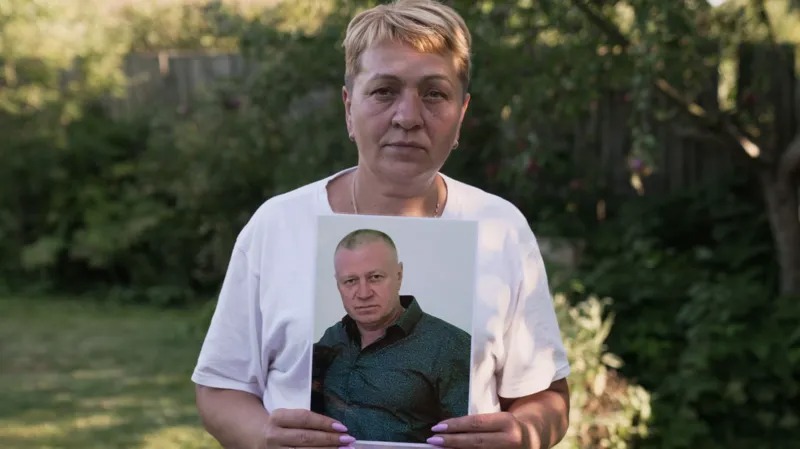
Families are frustrated because the Ukrainian government will not swap Russian soldiers for civilian hostages.
Ukraine’s human rights ombudsman Dmytro Lubinets told BBC that dealing with Russia is like “playing chess with an opponent who stands up, pulls on boxing gloves and punches you.” Ukraine has no Russian civilian prisoners to trade, while sending soldiers back in return for civilians would trigger more abductions. Only one previous exchange involved Ukrainians accused of collaboration. It is unclear if that approach will be repeated.
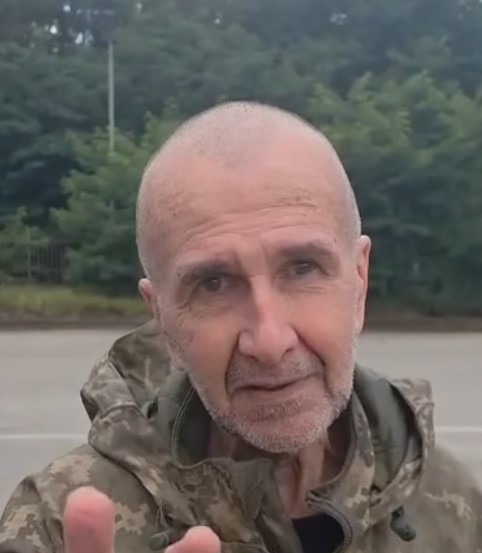
For Dmytro, the long wait is almost over. He is recovering in a Kyiv hospital before returning to his village. His mother Halyna can hardly mention his name without crying.
“When Dima called, he told me to be calm, that I shouldn’t cry anymore. But we haven’t seen our son for three and a half years!” she said.
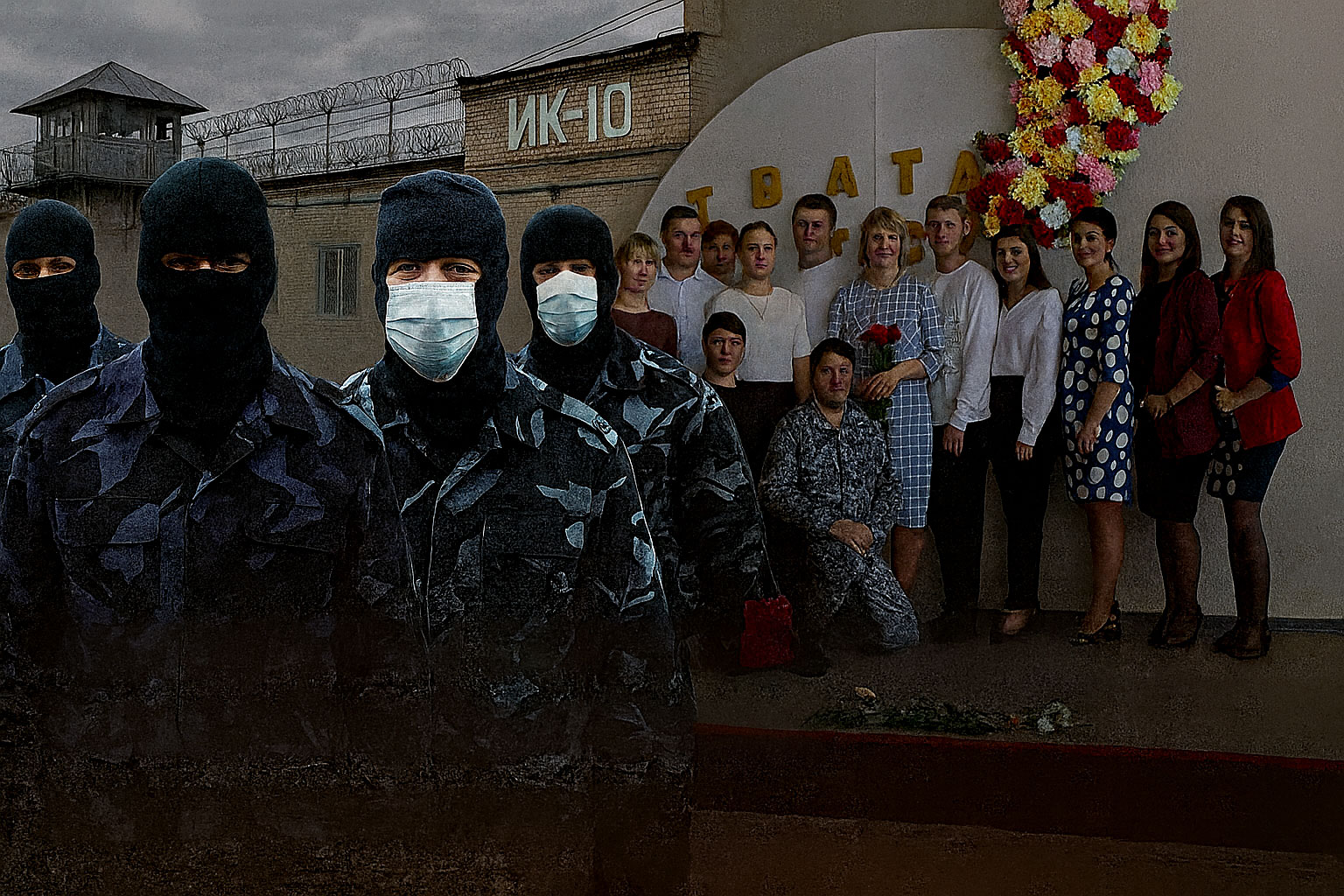
Back home, his house still bears shrapnel scars from Russia’s advance. He admits returning requires adjustment.
“So the trees are the same, the buildings are the same. But you understand this is a different country. You’re in a different reality,” he said.
Honouring Donald Trump with a second state visit is a diplomatic strategic necessity for King and country, explains world affairs editor Sam Kiley

© PA Wire

Israel and Ukraine have unveiled a joint security operation to safeguard tens of thousands of Jewish worshipers traveling to Uman for Rosh Hashanah, The Jerusalem Post reports. The operation is designed to protect pilgrims despite the ongoing Russian war and rising missile and drone strikes.
On 11 September, Israel’s Minister of National Security Itamar Ben-Gvir announced the plan after hosting Ukrainian Ambassador Yevhen Korniichuk, Israeli security officials, and representatives of the Haredi Orthodox community in Jerusalem on 10 September.
The mission also includes medical teams and coordination with Ukraine’s Chief Rabbi, Moshe Reuven Azman. His teams will be stationed at border crossings and on the ground to support worshippers during the holiday.
“The State of Israel places supreme importance on the safety of travelers,” Ben-Gvir said.
He welcomed the cooperation with Ukraine, calling it an “unprecedented operation” to ensure a safe and joyful pilgrimage.
Ambassador Korniichuk stressed Ukraine’s commitment despite wartime conditions.
“Ukraine, despite the burden of the Russian war and the severe security situation on the ground, is committed to holding a safe and respectful event in close cooperation with Israel,” he said.
Rabbi Azman praised the coordination, saying he welcomed the effort “to ensure that every worshipper can arrive with peace of mind and complete safety.”
Since the 1990s, Israeli pilgrims have made up the largest group attending Uman for Rosh Hashanah, with tens of thousands traveling annually. Many arrive through organized groups that manage logistics in coordination with Ukrainian authorities and local volunteers. In July, Ukraine declared Rabbi Nachman’s grave a national heritage site.
Duke of Sussex’s trip to Kyiv comes after a four-day stay in the UK that included a meeting with his father King Charles

© AP
The drones will be designed by Ukraine, with support from UK scientists and technicians

© Leon Neal/PA Wire
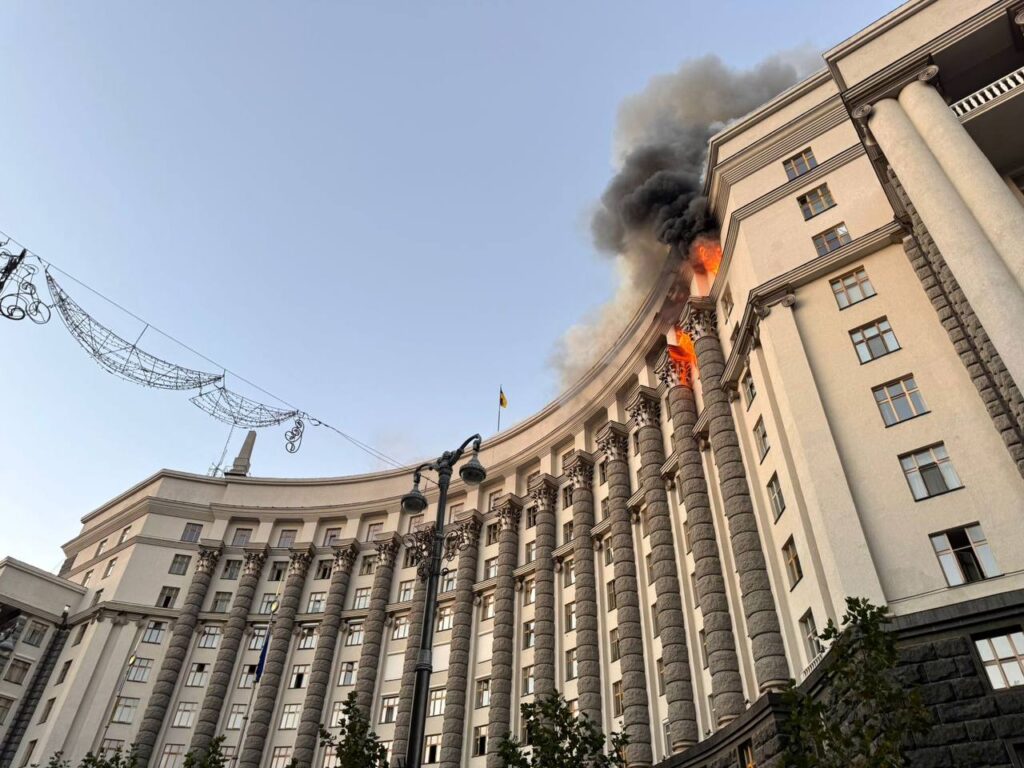
Russia’s 7 September missile attack on Kyiv’s Cabinet of Ministers building used an Iskander 9M727 cruise missile containing more than 30 foreign-made components, including parts manufactured in the US, UK, Japan, and Switzerland, according to Ukrainian presidential adviser on sanctions policy, Vladyslav Vlasiuk.
Amid the ongoing Russo-Ukrainian war, Russia continues daily drone and missile attacks on Ukrainian cities. Ukraine’s analysis of wreckage and unexploded munitions reveals Moscow’s extensive use of foreign-made components in the production of its drones and missiles.
Vlasiuk confirmed the building was struck with a 9M727 Iskander missile. The warhead did not explode, he said, likely due to the missile being damaged. However, the fuel ignited and caused a fire on the roof of the Cabinet building.
According to Vlasiuk, a previously examined missile of the same model contained 35 American-made parts, five Belarusian parts, and 57 Russian ones. The missile also included one component each from Japan, the UK, and Switzerland.

Foreign manufacturers identified in the missile included Texas Instruments, Analog Devices, and Altera from the US, College Electronics Ltd from the UK, Fujitsu from Japan, and Traco Power from Switzerland.
Belarusian company Integral was also listed, alongside multiple Russian firms such as Mikron, Production Association “Strela”, Angstrem, Research and Design Bureau “Eksiton”, and Karachevsky Plant “Elektrodetal”.
Vlasiuk noted that compared to missiles analyzed in previous years, the number of US and European components had declined. In contrast, the use of Russian and Belarusian-made components increased.
On 7 September, Russia launched an unprecedented assault on Ukraine using 605 explosive drones and 13 missiles. One of the missiles struck the roof of the Cabinet of Ministers building in central Kyiv.
The deadliest attack that day targeted a nine-story apartment building in Kyiv’s Sviatoshynskyi district. The blast at the residential building killed three civilians, including a baby, and injured 11 others. Ukraine’s State Emergency Service (DSNS) completed the search and rescue operation at the site on 8 September. Rescuers managed to save seven residents from the rubble.

© Stian Lysberg Solum / NTB
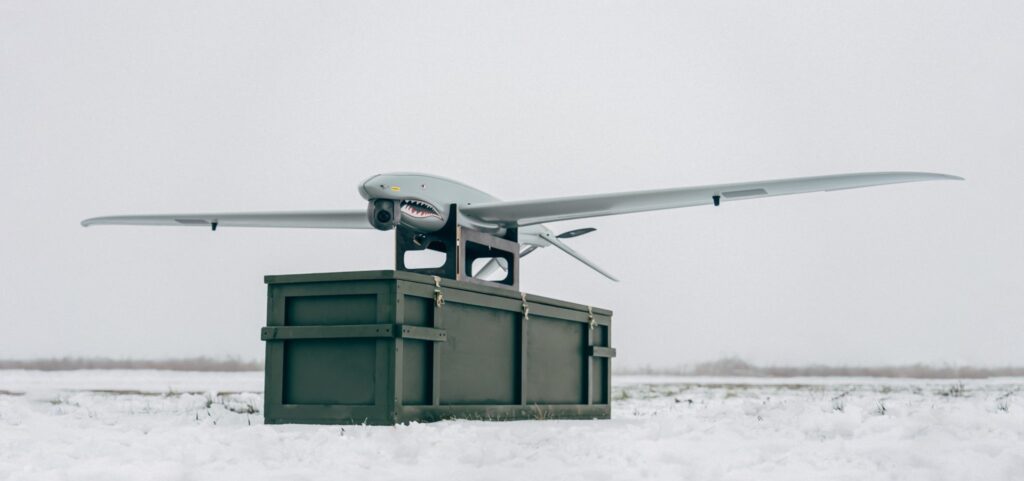
Ukrainian drone manufacturer Ukrspecsystems is expanding operations into the United Kingdom, launching a new military drone production factory and training site. The company, which produces eight types of drones for military and civilian use, said production at the UK site will start in 2026.
Norwich Evening News reports that the company will build an 11,000 m² factory in Mildenhall, a small town in eastern England, part of the Suffolk county, along with a testing and training center in Elmsett about 70 km away, creating hundreds of jobs and apprenticeships. The total investment will reach £200 million (approximately $250 million) over the next three years.
According to Ukrspecsystems, the drones will not only be built and tested in Britain, but operators will also be trained in tactics rooted in Ukraine’s battlefield experience.
“Ukrspecsystems is proud to be the first Ukrainian company to commit to a funded plan to invest in infrastructure, jobs and skills in the UK,” said Rory Chamberlain, the UK managing director for Ukrspecsystems. “Our factory at Mildenhall and flight test and training facility at Elmsett are testament to this commitment.”
The plant’s opening comes as 550 workers at the Lotus sports car plant in Hethel, also in eastern England, face redundancy. Ukrspecsystems has expressed interest in hiring from this experienced engineering pool, and local authorities have welcomed the opportunity to redirect skilled workers into defense technology roles.
The support package includes help with job placement, financial and mental health support, and small business assistance. Job seekers will be connected with engineering vacancies, including those at the new drone plant, and offered free retraining courses. Pop-up outreach vehicles will be deployed to the Lotus site and a space reserved at the Hethel Engineering Centre.
Ukrspecsystems drones are not only of interest to the UK. In April 2025, a Shark reconnaissance drone produced by the company was spotted during testing in the Czech Republic, suggesting broader European cooperation and growing demand for Ukrainian-developed battlefield technologies.
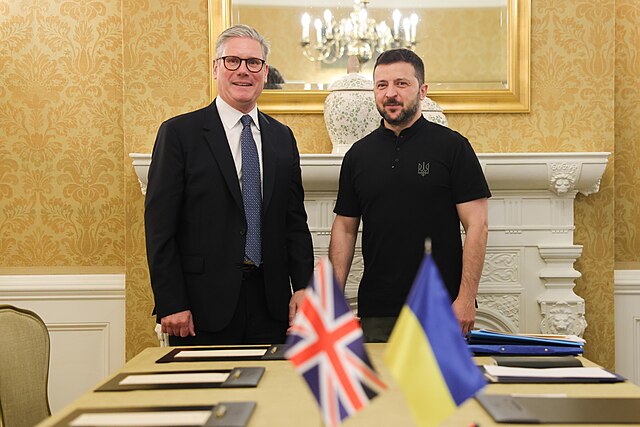
UK Prime Minister Keir Starmer announced on Thursday that members of the “Coalition of the Willing” have pledged to supply Ukraine with long-range missiles, as part of efforts to strengthen Kyiv’s defense capabilities.
The delivery of long-range missiles will enable strikes on military targets deeper inside Russian and Russian-held territory supporting both defensive and counteroffensive operations.
Ukraine has long requested additional long-range weaponry, but Western partners have been cautious due to concerns about escalating the conflict. Such weapons allow Ukraine to effectively disrupt supply lines that sustain Moscow’s war effort far from the front lines.
Speaking to a virtual session of the Coalition of the Willing from Glasgow, the Prime Minister said that Russian President Vladimir Putin could not be trusted, citing ongoing attacks on Ukraine and delays in peace talks.
The Prime Minister also thanked military planners and chiefs of defense of Coalition countries for their work to ensure forces could be deployed if a ceasefire is reached.
He described the coalition’s support for Ukraine as “unbreakable” and that they had US President Trump’s backing.
He added that they now need “to go even further to apply pressure on Putin to secure a cessation of hostilities.”

As European leaders prepare for a summit on 4 September in Paris, their approaches to security guarantees for postwar Ukraine remain divided into three distinct groups, the Financial Times reports. While a small group of countries, including the UK, are ready to deploy troops, Italy has ruled out participation entirely, and a larger group—among them Germany—have yet to make any firm commitments.
The planned multinational force for Ukraine is at the center of ongoing negotiations over long-term security guarantees. The initiative is being pushed by France and the UK, with the US offering limited but targeted support. According to FT, European capitals are under increasing pressure to clarify what each country is willing to contribute.
French President Emmanuel Macron will host the summit, with some leaders joining in person and others remotely. The talks follow a preparatory meeting on 3 September involving defense officials. UK Defense Secretary John Healey co-chaired the call, where he stated that Britain was “reviewing readiness levels of UK Armed Forces and accelerating funding to be ready for any deployment to Ukraine,” according to the UK Ministry of Defense.
An official from the Élysée Palace told FT that technical preparations for the coalition’s contribution had been completed by those countries “willing and able” to offer security guarantees. “Today we have enough contributions to be able to tell the Americans that we are ready to assume our responsibilities, provided that they assume theirs,” the official said.
US President Donald Trump has told European leaders that Washington would offer intelligence, command and control systems, and help in establishing an air defense shield, but insisted that the European side must lead the effort.
NATO Secretary-General Mark Rutte said on 3 September that he expected “concrete proposals” to be delivered either that day or soon after. He added that further steps would include intensified coordination with the US regarding its participation in the broader effort.
Germany’s position remains unclear. Officials in Berlin reportedly reacted negatively to European Commission President Ursula von der Leyen’s comments to FT that member states were working on “pretty precise plans” for potential deployments to Ukraine, including a “clear road map.”

The UK is set to unveil additional sanctions targeting Russia, Foreign Secretary David Lammy said in Parliament on Wednesday, Sky News reports.
The new measures are expected to target individuals profiting from Russian oil. Lammy said that an announcement would be made “very shortly,” without providing further details.
Lammy highlighted Britain’s previous measures, including lowering the Russian oil price cap – a move designed to limit Moscow’s revenue from exports while avoiding major disruptions to global energy markets – which he described as “essential.”
He also noted Britain’s role in enacting what he described as the “largest package of sanctions anywhere in the world against Putin’s war machine.”
This development comes as the European Union is discussing its 19th sanctions package, which may include secondary sanctions on countries aiding Moscow.
The pair, aged 37 and 43, appeared at Portsmouth Crown Court charged with facilitating illegal immigration

© Chris Ison/PA
Keir Starmer’s commitment to deploy British peacekeepers to Ukraine has raised questions over whether the UK is ready for conflict, Alicja Hagopian writes

© Getty/PA
It comes after Donald Trump said he had spoken directly with Vladimir Putin to begin planning a meeting between the Russian leader and Ukraine’s Volodymyr Zelensky

© PA
Sir Keir Starmer said ‘real progress’ was made during the crunch talks on Monday

© Reuters
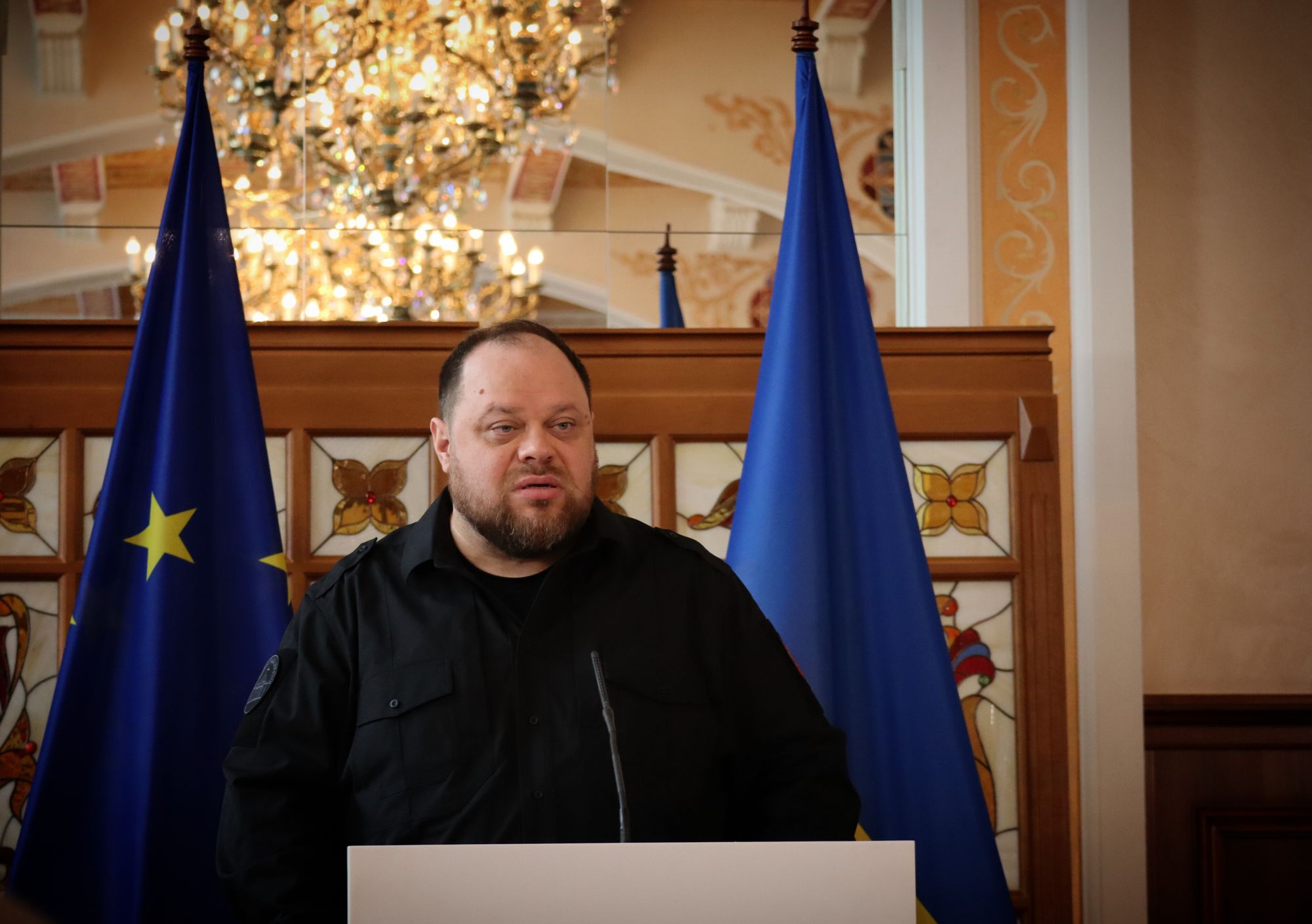
Chairman of the Verkhovna Rada Ruslan Stefanchuk said on June 28 that Ukraine's parliament is preparing a draft bill to hold elections following the end of the martial law period enacted as a result of the war.
"We are working on this draft law, because for the next elections, a new special draft law is needed that will regulate the so-called post-war elections," Stefanchuk said on Ukraine's marathon TV broadcast.
"We are preparing various basic scenarios so that people can exercise their fundamental constitutional right to vote. And this must take place in Ukraine. And I believe we will be able to find the right legislative compromise," he added.
The reason for separate legislation on a post-war election, Stefanchuk previously said, was due to the fact that Ukraine's Constitution does not not provide clarity on the details of holding elections following the end of a martial law period.
No details on the bill or timeline for implementation were provided.
Russia's full-scale invasion and the subsequent declaration of martial law in Ukraine meant elections have been impossible to hold, and President Volodymyr Zelensky's term has been extended, something constitutional lawyers say is allowed under Ukrainian law.
Despite criticism, Ukraine's parliament, the Verkhovna Rada, passed a resolution on Feb. 25 to hold elections after "a comprehensive, just, and sustainable peace is secured" in the country.
While polling shows a vast majority of Ukrainian citizens do not support holding elections before a full peace deal, the lack of elections has stirred some controversy with Ukraine's allies.
At the start of his second term in office, U.S. President Donald Trump urged Ukraine to hold elections — something that Ukraine has thus far refused to do citing the difficulties of holding elections amid active warfare, as well as security implications.
Zelensky has previously said he is willing to step down in exchange for a peace agreement.
Russian propaganda has widely used the issue of elections in Ukraine to discredit the Ukrainian leadership. Mocow has repeatedly claimed that Zelensky is no longer a legitimate president, as his first term was originally meant to end on May 20, 2024.
 The Kyiv IndependentAbbey Fenbert
The Kyiv IndependentAbbey Fenbert